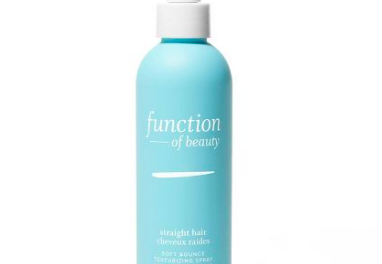
When it comes to healthcare, we all want to be in control of our own lives – but sometimes, health issues can make that seem impossible. Luckily, Medicare offers coverage for home healthcare, which can help you or your loved ones maintain independence and quality of life. So, if you’re interested in learning more about how Medicare can cover home healthcare, keep reading!
Home healthcare differs a bit from more commonly known types of care like respite care, hospice care, or inpatient care in the sense that it’s a medical service provided in the comfort of one’s home. Still, it’s primarily focused on assisting individuals recovering from an illness or injury or managing a chronic condition that requires ongoing medical attention.
Some general things you can expect to see included with home health services are:
- Administering medication
- Wound care
- Physical therapy
- Occupational therapy
Now that we’ve got a basic understanding of what home healthcare entails, let’s get to the most confusing part about it – how Medicare factors in.
What Does Medicare Cover in Home Healthcare?
Medicare Part A and B both offer coverage for medically necessary services and supplies, and Part C, also known as Medicare Advantage Plans, may provide additional coverage.
Medicare Part A covers 20% of the cost of medical equipment like walkers or wheelchairs. It also covers skilled nursing care and counseling to help manage chronic conditions. However, coverage for home health care is limited and may only be available if specific criteria are met. Read more at Medicare.gov.
Medicare Part B, as opposed to Part A, provides coverage for medically necessary services or supplies. This includes preventive care, counseling, diagnostic tests like X-rays, nursing services, and physical therapy. One caveat to note – you may need to pay a 20% coinsurance for certain services after the annual Part B deductible is met.
If you’ve got both Parts A and B, then you may qualify for Part C, also known as Medicare Advantage. You can read more about Part C on Medicare’s website here. Do note that an Advantage Plan is another way to receive the benefits of Medicare, but it comes with its own pros and cons.
What Home Health Services Are Covered by Medicare?
Medicare covers a range of services that help you receive medical treatment at home. The main services included are skilled nursing care, physical therapy, occupational therapy, and speech-language pathology. Depending on specific criteria, Medicare Parts A and B may also cover medical social services and part-time or intermittent home health aide care.
What Doesn’t Medicare Cover?
As already discussed, you must meet specific criteria to be eligible for coverage. Even if you are eligible, though, there are a couple of things that Medicare will NOT cover:
- Custodial care, like bathing and dressing
- Long-term care needs
- Most dental care
- Eye exams
- Dentures, cosmetic surgery, and hearing aids
- Massage therapy and concierge care
Who Is Eligible for Home Healthcare Coverage?
In terms of eligibility, if you are 65 years of age or older, have a disability, or have a chronic condition, you are likely eligible for Medicare home healthcare coverage. However, a physician must certify that you require skilled nursing care or therapy services on an intermittent basis and are “confined to home.”
What Are the Limitations of Medicare Home Healthcare Coverage?
Home healthcare coverage under Medicare has some limitations to ensure the program’s funds are used efficiently. Here are the key points you need to know about the length of coverage:
Maximum Number of Covered Visits Per Year
Medicare provides unlimited coverage for necessary home healthcare services. However, there may be limits on how often you can receive certain types of care. For example, if you need therapy twice weekly, Medicare will only cover up to 24 visits yearly.
Duration of Each Home Health Care Visit
Luckily, there is no set time limit for each home health visit covered by Medicare. The duration depends on your needs and what kind of services your doctor orders.
The Renewal Process for Continued Coverage
Last but not least, your eligibility for home health care is reviewed periodically to ensure you still meet the criteria for skilled nursing or therapy services. If your condition improves or stabilizes or you no longer need professional care at home, your benefits may end.
It is essential to understand the limitations and duration of coverage to avoid unexpected costs and ensure that you receive the care you need.
Wrapping Up
To put it all together, Medicare coverage for home healthcare is an extremely valuable resource for people who require care and therapy services. Still, there are limitations to the coverage that you should keep in mind, such as Medicare not covering personal or custodial care.
The information and resources we provided should empower you to make an informed decision regarding this benefit. So don’t hesitate to reach out to your healthcare or Medicare provider today to learn more about your coverage and assistance options.
Let’s Have a Conversation:
How do you feel about someone coming into your home to provide care? Have you ever been discharged from the hospital before you were ready? What are your thoughts on the Medicare program as a whole?





